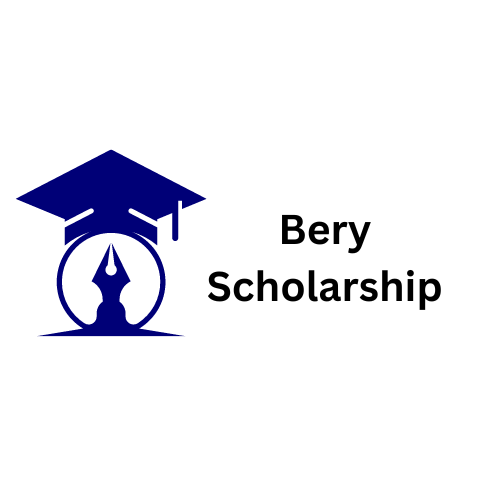What are the typical eligibility criteria for these scholarships?
Answer: The eligibility criteria for scholarships typically depend on the level of the degree you’re applying for.
- Undergraduate Scholarships: You must complete an intermediate degree and 12 years of formal education.
- Master’s Scholarships: A bachelor’s degree is usually required.
- PhD Scholarships: A Master’s degree is necessary.
In addition to these basic requirements, strong academic performance is often essential. Typically, you should have at least 70% marks, an ‘A’ grade, or a 3.0/4.0 CGPA to be eligible for most scholarships
Which universities or institutions offer fully funded scholarships for Master’s or MPhil programs?
Answer: Numerous prestigious universities, institutions, and government bodies worldwide offer fully funded scholarships for Master’s or MPhil programs. Here are a few notable examples:
- Oxford Pershing Square Scholarship (UK): This scholarship is offered by the University of Oxford and provides full funding for a Master’s degree, including tuition fees and living expenses. It’s awarded to exceptional students who demonstrate leadership potential and a commitment to addressing global challenges.
- KAIST University Scholarship (South Korea): The Korea Advanced Institute of Science and Technology (KAIST) offers fully funded scholarships for international students pursuing Master’s degrees. The scholarship covers tuition, a monthly stipend, and health insurance, making it an attractive option for those interested in studying in South Korea.
- Government of Ireland Scholarship: This scholarship is funded by the Irish government and is available to international students pursuing Master’s degrees in Ireland. It covers tuition fees, provides a stipend for living expenses, and includes a contribution towards travel and other costs.
These scholarships are highly competitive and are awarded based on academic excellence, leadership qualities, and a demonstrated commitment to making a positive impact in your field of study. Each scholarship may have specific eligibility criteria and application requirements, so it’s important to research and prepare thoroughly if you’re interested in applying.
Are there scholarships available for specific regions or countries?
Answer: While most scholarships are open to international students from around the world, some scholarships are indeed designated for specific regions or countries. However, the majority are accessible to students globally, allowing anyone to apply regardless of their location. There are only a few scholarships that target specific regions or countries.
For example, certain scholarships may be aimed at students from developing nations, while others might focus on regions like Asia, Africa, or the Middle East. Additionally, some scholarships are designed to promote cultural exchange and collaboration between specific countries. It’s important to carefully review the eligibility criteria of each scholarship to determine whether it targets a particular region or is open to applicants worldwide.
Do these scholarships cover only tuition fees, or do they also include living expenses, travel costs, and other allowances?
Answer: It depends on the scholarship. Some cover only tuition fees, while others include living expenses, travel costs, and additional allowances. For example, the Oxford Pershing Square Scholarship covers tuition, living expenses, and a travel allowance. Similarly, the KAIST University Scholarship provides full funding that includes tuition, a monthly stipend, and health insurance. Always review the benefits section of each scholarship to understand what is covered before applying.
How do I apply for these scholarships?
Answer: To apply for these scholarships, start by carefully reviewing the eligibility criteria and benefits outlined for each one. Gather all required documents and follow the application instructions provided by the scholarship provider. Make sure to submit your application before the deadline, and double-check that all materials are complete.
What documents are usually required for the application?
Answer: The documents typically required for a scholarship application include:
Completed application form
- Valid passport
- Proof of academic qualifications (transcripts, Degree)
- Letters of recommendation (If Required)
- Personal statement or essay (If Required)
- Resume or CV
- Standardized test scores (if applicable)
- Proof of language proficiency
Financial statements (If Required)
For a more detailed list, check out this essential documents guide.
Note: The specific documents required can vary from scholarship to scholarship. Always check the individual scholarship’s requirements for precise information.
Are there specific deadlines I should be aware of?
Answer: Yes, deadlines vary from scholarship to scholarship. It’s important to check the specific deadlines for each scholarship you are interested in to ensure you submit your application on time. Always refer to the scholarship’s official website or contact the scholarship provider for the most accurate and up-to-date information.
How competitive are these scholarships, and what can I do to increase my chances of being selected?
Answer: Scholarships can be very competitive, so it’s important to stand out. To improve your chances, make sure you meet all the eligibility criteria and submit your application before the deadline. Highlight your academic successes, get strong letters of recommendation, and write a personal statement that shows your passion and goals. Modify your application to each scholarship’s requirements and demonstrate how you fit with their mission. Being organized and putting in extra effort can really help you make a strong impression.
What kinds of projects or research areas are supported by these scholarships?
Answer: The projects or research areas supported by scholarships depend on your field of study. For example, if you’re applying for a scholarship in International Relations, it might support research on global diplomacy, conflict resolution, human rights, international law, or international economic relations. Scholarships often look for projects that align with current global issues or contribute to the advancement of knowledge in the field. Always review the specific scholarship’s focus and priorities to understand what types of research they are interested in supporting.
Do these scholarships require work experience in the field?
Answer: It depends on the specific scholarship. Some scholarships may require work experience in the field, while others do not. Requirements can vary widely, so it’s important to carefully review the eligibility criteria for each scholarship to determine if work experience is necessary. If work experience is not a requirement, other factors such as academic achievements and project proposals may be considered.
Can I pursue an internship or work placement as part of the scholarship program?
Answer: It depends on the specific scholarship program. Some scholarships may include opportunities for internships or work placements as part of their benefits, offering practical experience in addition to financial support. Others may provide only financial assistance without any work placement components. Be sure to check the scholarship’s guidelines or contact the scholarship provider to find out if internships or work placements are included.
What is the duration of the scholarship, and does it cover the entire master’s program?
Answer: The duration of a master’s scholarship can vary, typically ranging from 1 to 2 years, depending on the program and scholarship provider. Some scholarships may cover the entire length of the master’s program, while others may provide funding for only a portion of it. It’s important to review the specific details of each scholarship to understand the coverage and duration of financial support.
What are the expectations in terms of academic performance during the scholarship?
Answer: Scholarship programs often have specific expectations for academic performance. Generally, you are expected to maintain a high academic standard, such as achieving a minimum GPA or CGPA. This is to ensure you are making satisfactory progress in your studies. Some scholarships may require regular progress reports or academic evaluations to ensure you meet their criteria. Always review the scholarship’s terms and conditions to understand the specific academic performance expectations.
How can I find scholarships that align with my academic and career goals?
Answer: To find scholarships that align with your academic and career goals, start by researching scholarships offered by universities, professional organizations, and industry associations related to your field. Use scholarship search engines and databases, such as Bery Scholarship Circle ( https://scholarships.bery.com.pk/ ), and check the career services office at your current or prospective institution. Search for scholarships that support your specific area of study or career interests, and review the eligibility criteria and application requirements to ensure a good fit. Networking with professionals and academic advisors can also help you discover relevant opportunities.
Are there online platforms or databases where I can search for relevant scholarships?
Answer: Yes, Bery Scholarship Circle is a valuable resource for finding scholarships. It offers detailed information and opportunities customized to various academic and career goals, making it easier to find scholarships that fit your needs.









